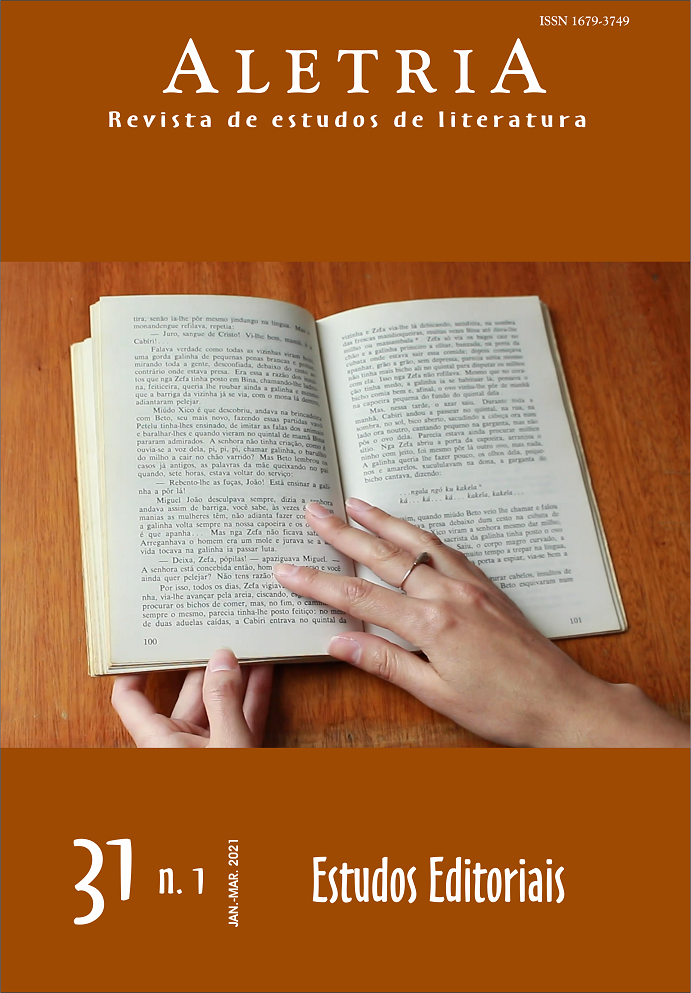Mirrors of the Universe
Perspectives Within Borges and Calvino’s Literature
DOI:
https://doi.org/10.35699/2317-2096.2021.24316Keywords:
Borges, Calvino, fantastic , sign , lossAbstract
This paper presents an analysis of two short stories of the fantastic genre: “O Aleph” (O Aleph, 1949), by Jorge Luis Borges, and “Um sinal no espaço” (Cosmicômicas, 1965), by Italo Calvino. Whereas the Borgian tale brings a view of the universe through a small magical object, a microcosm, in Calvino’s narrative, according to another perspective, the macrocosm is glimpsed. In Borges, the vision is contemplated through the I-other relationships, in a loving triangulation of writing characters. In “Um sinal no espaço”, the relations take place on the I-Other plan – the symbolic, the language –, because it is about literary and imaginary signs. Thereafter, the universe of inexorable loss is contemplated via literature.
Downloads
References
CALVINO, Italo. Todas as cosmicômicas. Trad. Ivo Barroso e Roberta Barni. São Paulo: Companhia das Letras, 2007.
CHEMAMA, Roland (Org.). Dicionário de psicanálise. Trad. Francisco Franke Settineri. Porto Alegre: Artes Médicas Sul, 1995.
FOUCAULT, Michel. As palavras e as coisas: uma arqueologia das ciências humanas. Trad. Salma Tannus Michail. São Paulo: Martins Fontes, 2007.
MACHADO, Maria Luiza Bonorino. O espelho e a máscara: o narrador dos contos fantásticos latino-americanos. Porto Alegre: UFRGS, 1999.
Downloads
Published
How to Cite
Issue
Section
License
Copyright (c) 2021 Neide Souza Bortolini (Autor)

This work is licensed under a Creative Commons Attribution 4.0 International License.
Authors who publish with this journal agree to the following terms:Authors retain copyright and grant the journal right of first publication with the work simultaneously licensed under a Creative Commons Attribution Non-Commercial No Derivatives License that allows others to share the work with an acknowledgement of the work's authorship and initial publication in this journal.Authors are able to enter into separate, additional contractual arrangements for the non-exclusive distribution of the journal's published version of the work (e.g., post it to an institutional repository or publish it in a book), with an acknowledgement of its initial publication in this journal.Authors are permitted and encouraged to post their work online (e.g., in institutional repositories or on their website) prior to and during the submission process, as it can lead to productive exchanges, as well as earlier and greater citation of published work (See The Effect of Open Access).





